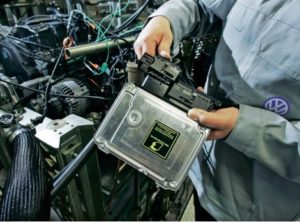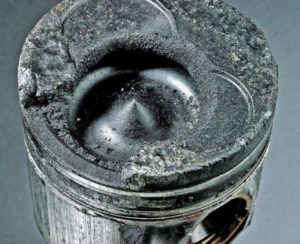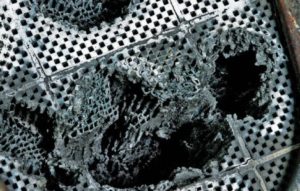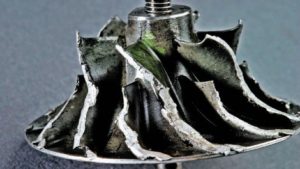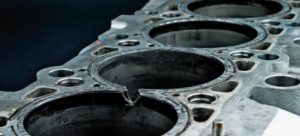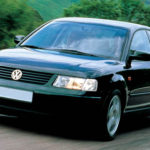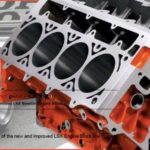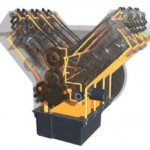Chip tuning - Consequences of bad chip tuning
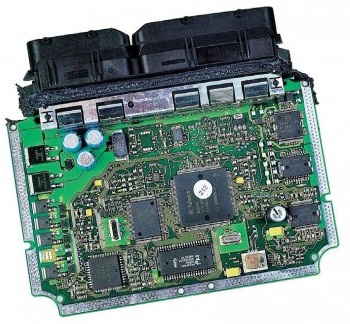
Chip tuning
Power! More power! Even more power! Fast car lovers just can't have enough. That is why they subject their pets to chip-tuning, an operation that changes the engine's operating parameters to produce more power. Unfortunately, with more power comes potential engine and transmission problems.
The ads are full of various companies that promise more power and lower spending per hand. It certainly seems tempting: 20, 30, 40 and more horsepower and much higher torque at a price that starts from € 200 and up. Of course, this kind of gain brings with it certain risks, so who does not take care of where and with whom the chip tuning works can go poorly. All in all, deciding whether to "chip" the engine is really difficult, and the internet doesn't help much because it's full of opinion from local gurus who spread wisdom through various forums.
The most common misconception tuning is closely related to modern diesel engineers, who are also the most "patient" tuning companies. Here's the thing: Car manufacturers often have multiple engines of the same volume and different power. This serves the aforementioned internet gurus as a great story for the story - here is the same engine, and different power, the difference is only in the software, play it freely on 150 horses and don't worry, here you see, the factory itself offered that yours from 90 and this from 150 hp, so everything is regular. It's not like that.
Consider one of the most popular tuning engines in our country - the Volkswagen 1.9 TDI. It was made in 90, 100, 110, 115, 130 and 150 horsepower versions. By that logic, the basic 90hp version can be freely software-tuned to 150hp because the engines are identical? Incorrectly! These engines are very different from each other, and in important matters! The turbine is different, the injectors also, and the intercoolers are different. Even the material of which the crankshaft and engine block are made is different, 115 more horsepower versions have these elements made of high quality steel.
So, what happens when the power of the mentioned engine increases from 90, for example to 150 horsepower? Simply put, a "blown" engine requires more air and more fuel for such an increase in power. Here are the problems because that excess air must be provided by the turbine. In standard mode, at 90 hp, it provides a pressure of 1,05 bar while operating at 205000 rpm. To provide the extra pressure required by the "chipped" mode, it must rotate as much as 28000 times per minute. This significantly shortens its lifespan, and you can see the result in the picture below in the text.
The next problem is nozzles (code TDI diesel, of course). It requires more power and more fuel that the nozzles have to inject directly into the cylinder. The injector runs at a constant speed and the amount of fuel it will inject into the cylinder cannot be accelerated. In order to inject a larger amount of fuel, the tuners extend the injection phase into the cylinder. With poorly performed chip tuning, this leads to the consequence that the injection is not completed in time before the piston is lowered and part of the fuel ends up on its side. It does not burn there, but raises its operating temperature and thus increases the friction, which in the long run leads to its accelerated end. Worse, unburned fuel also ends up in the particle filter (on models that have it) and contaminates it. The result is a higher combustion temperature in this filter. That's a big problem, and here's why. Namely, when a critical amount of soot is deposited, the particle filter begins the regeneration phase. It injects a precisely defined amount of fuel into the combustion chamber and ignites that mixture. Under normal circumstances, regeneration is performed at temperatures around 600 degrees, but a larger amount of fuel created as a result of overflow from the cylinder in combination with a larger amount of air, raises that temperature to over 1000 degrees. Such a high temperature filter particle can not last long and it eventually literally burns out.
This is not the end of potential problems due to chip tuning, because, apart from the engine, they can also have consequences on the gearbox. For a start, the floating flywheel is a faithful companion of all new diesels. It is designed so that its operation fits in with the engine torque. Higher torque also means greater tension of its springs, which dampen vibrations from the engine. This entails a shorter service life, and in extreme cases, the springs of the floating flywheel have been cracked.
Of course, with quality chip tuning and quality regular maintenance, these problems will not occur. We emphasize once again the quality of regular maintenance, because the service life of the car and all the listed components depends on it. Original oil and filters are the warmest recommendation as well as a shortened maintenance period every 10 to 12 thousand kilometers.
Surprise under the hood
Engine tuning is not easy to recognize. If the previous owner did not leave the label of the tuning house somewhere on the car, the buyer of a used vehicle simply has no chance to conclude on its own that the chip tuning was done on it. This can only be determined by a diagnostic check, when a diagnostic device in the official service will report that something is wrong with the injection map. Living in ignorance is not very pleasant because, especially if you neglect regular maintenance, some of these failures can be very unpleasant to surprise, not to mention bite your lower back. So chip tuning is definitely one of the many problems that can affect second-hand buyers.
These are the consequences of an unprofessional chip tuning
Burned klip
Poorly synchronized injection puts some fuel on the side of the piston. This increases his working temperature and practically destroys them in the long run.
Burned particulate filter
The filter is clogged and the engine is in higher operating modes. Then the system starts the process of filter regeneration, if the driver suddenly releases the accelerator pedal, a large amount of oxygen enters the filter and the temperature rises uncontrollably.
Complete turbine failure
The reason is of course the speed of rotation. Tuning significantly increases the number of revolutions of the turbine, after a long time the wings of the turbine begin to deform. Tiny pieces of metal fall off them and end up in the engine.
Cracking the engine block
Higher power inevitably increases the pressure when combusting fuel in the cylinder.
Excessive pressure, the result of unprofessional chip tuning, can lead to engine failure. This usually happens at the weakest, ie the thinnest point of the engine block, the space between the cylinders. Such damage cannot be repaired.
CONCLUSION
vesti.mojauto.rs
Recommendation of similar texts:

Hi there, I am Mladen and I am an auto enthusiast. I started this blog years ago to help like minded people share information about latest cars, car servicing ideas, used car info, exotic cars, and auto technology. You will find helpful articles and videos on a wide variety of cars - Audi, Mercedes, Toyota, Porsche, Volvo, BMW and much more. Ping us if you have anything cool to share on latest cars or on how to make older cars more efficient, or just want to say hi!

